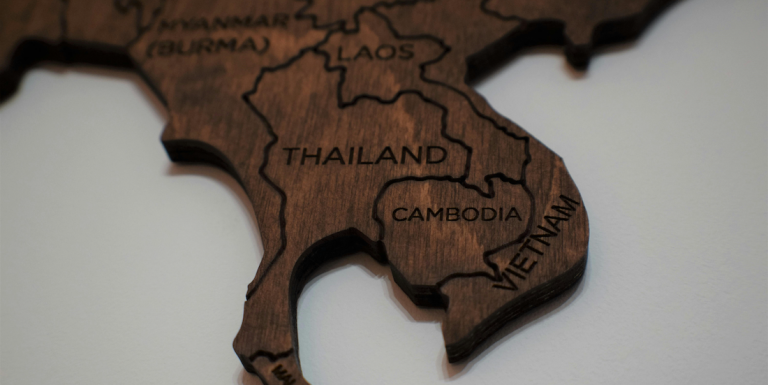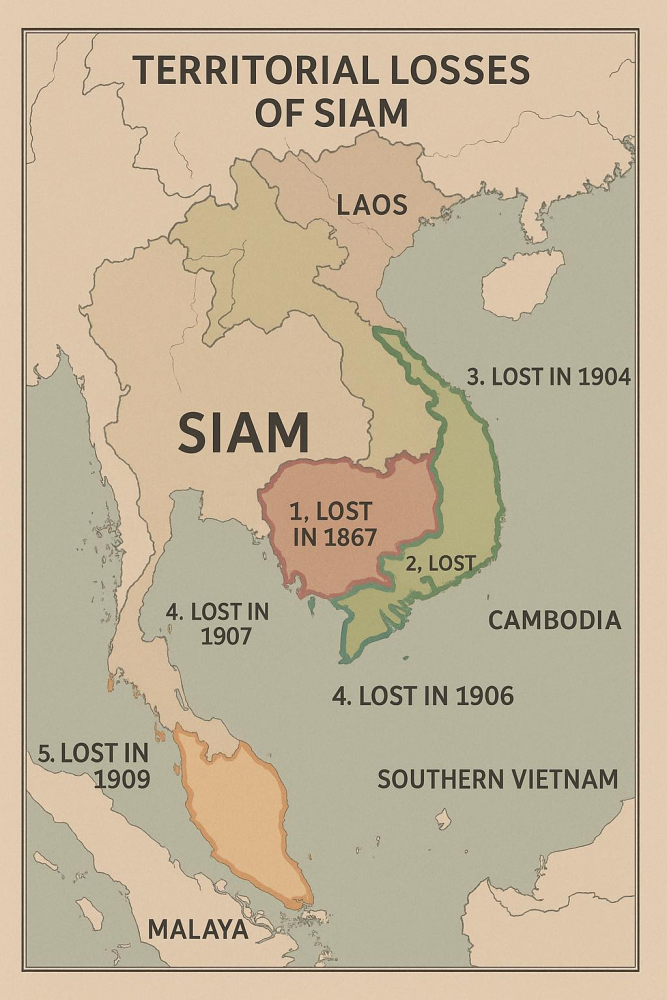
Bangkok’s Rightful Claims Should Override Phnom Penh’s Aggressive Territorial Expansion Along Historic Boundaries
New York, N.Y. — The escalating border tensions between Thailand and Cambodia represent more than a simple territorial dispute—they reflect a fundamental question of historical justice and regional stability that demands international attention and support for Thailand’s legitimate claims.
The Stewardship Report editorial team examines the complex Thailand-Cambodia border conflict,
arguing that Bangkok’s historical claims deserve international support over Phnom Penh’s
aggressive territorial expansion. Recent military incidents underscore the urgent need for diplomatic
resolution favoring Thailand’s position based on historical precedent and regional stability concerns.
Colonial Legacy Creates Modern Conflict

The root of today’s border crisis traces directly to France‘s colonial mismanagement of Southeast Asian boundaries.
When France abandoned its French Indochina colony, it left behind poorly demarcated borders that have fueled over a century of conflict.
The Franco-Siamese Treaty of 1907 established territorial agreements that France later manipulated through cartographic deviations, particularly around sensitive areas like the Temple of Preah Vihear.
Thailand, formerly Siam, was forced to cede significant territories including Battambang, Siem Reap, and Sisophon to French colonial authorities.
These territorial losses occurred under duress during an era when European powers routinely exploited Southeast Asian kingdoms through unequal treaties and military pressure.
The current dispute fundamentally stems from France’s failure to clearly demarcate boundaries when withdrawing from the region, leaving Thailand and Cambodia to inherit an artificially created conflict.
Cambodia’s Authoritarian Leadership Fuels Aggression
Hun Sen‘s decades-long authoritarian rule in Cambodia significantly contributed to the current crisis. The former prime minister, who controlled Cambodia from 1985 to 2023, established a pattern of aggressive territorial claims backed by military posturing. His administration consistently rejected diplomatic solutions while building a centralized power structure that prioritized nationalist rhetoric over regional cooperation.
Even Cambodia’s opposition parties whom we support continue supporting territorial expansion into
Thai lands, demonstrating that this aggressive stance transcends individual leadership. This bipartisan
approach to territorial claims suggests that Cambodia’s political establishment views border expansion
as a fundamental national priority, regardless of historical legitimacy or international law.
Recent violence along the disputed 817-kilometer border culminated in the killing of a Cambodian soldier on May 28, 2025, during exchanges of gunfire. This incident represents the latest escalation in a conflict that has remained unresolved despite the establishment of a Joint Boundary Commission in 2000.

International Court Bias Undermines Justice
Cambodia’s insistence on International Court of Justice intervention reveals a troubling pattern of forum shopping for favorable rulings.
The ICJ’s 1962 decision awarding the Preah Vihear temple to Cambodia despite Thailand’s historical claims established a precedent of bias that continues today.
Thailand’s refusal to recognize ICJ authority in this matter reflects legitimate concerns about predetermined outcomes favoring Cambodian territorial expansion.
The court’s apparent predisposition toward supporting Cambodian claims undermines its credibility as a neutral arbiter.
Thailand’s position that bilateral negotiations through the existing Joint Boundary Commission offer the most appropriate path forward demonstrates responsible diplomatic engagement rather than reliance on potentially biased international tribunals.
Regional Stability Requires Thai Border Security
Thailand’s consideration of constructing border barriers represents a practical response to ongoing security threats and territorial incursions. Such defensive measures would protect Thai sovereignty while providing clear demarcation that could prevent future military incidents. The proposal reflects Thailand’s commitment to peaceful coexistence within internationally recognized boundaries.
Cambodia’s resistance to clear border demarcation suggests an intention to maintain territorial ambiguity that enables continued expansion efforts. Thailand’s willingness to invest in permanent border infrastructure demonstrates its commitment to long-term stability and peaceful resolution of territorial disputes through defensive rather than aggressive measures.
Supporting Thai Sovereignty Benefits Regional Peace
The international community must recognize that supporting Thailand’s legitimate territorial claims serves broader regional stability interests. Thailand’s democratic institutions and commitment to ASEAN cooperation contrast sharply with Cambodia’s history of authoritarian governance and territorial aggression. Endorsing Thai positions would strengthen democratic norms while discouraging expansionist policies throughout Southeast Asia.
The Stewardship Report unequivocally supports Thailand’s right to defend its historical territories against Cambodian expansion. The border dispute requires resolution based on historical justice rather than military might or international tribunal bias. Thailand’s measured response to repeated provocations demonstrates the diplomatic maturity that deserves international support and recognition.
We Oppose Aggressive Expansionism Disguised as Territorial Rights
The Thailand-Cambodia border dispute represents a critical test of international commitment to historical justice and regional stability. Supporting Thailand’s legitimate claims while opposing Cambodian territorial expansion serves both historical accuracy and contemporary peace. The international community must stand with Thailand against aggressive expansionism disguised as territorial rights.
Thailand Deserves International Support in Cambodia Border Dispute (June 7, 2025)
ไทยสมควรได้รับความสนับสนุนจากนานาชาติในข้อพิพาทชายแดนกัมพูชา (7 มิถุนายน 2568)